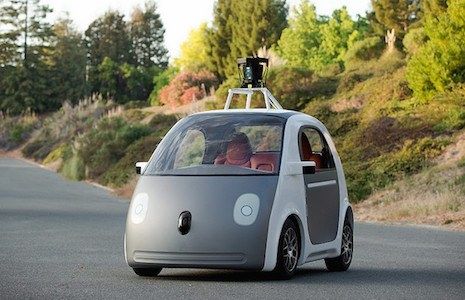
The Future is Coming Fast
By Siluen Perdomo, Pre-Litigation Supervisor at Rubenstein Law
What if we lived in a world where we could get around easily and safely, regardless of your ability to drive? Commute time would be spent doing what we really want to do.
Responding to emails, paying bills online, checking your social media, binge watching on Netflix, or simply enjoying the scenery of a road trip. All those things sound way better than honking the horn or yelling at the person in traffic using their cell phone or putting on their makeup… and now you’re late!
After many years of watching this kind of idea only happen in movies, we finally have a chance of experiencing this in real life! Google has commenced a self-driving car project. The prototype vehicle is designed to take you where you want to go at the push of a button. No driving required. That’s right--No! Driving!
Like any human driver, self-driving cars will still need to constantly answer questions like:
- Where am I?
- What is around me?
- What will happen next?
- What should I do?
To answer all these questions, these vehicles are designed to safely move around using sensors and software that detect pedestrians, cyclists, vehicles, and even birds as far as two football fields away in all directions. In 2009, they started testing the technology with a Toyota Prius and later began with a Lexus RX450h--to date, over 1.5 million miles on freeways and city streets.
Google is not the only company researching this idea. Companies such as Audi, Mercedes-Benz and Tesla are also working on developing a self-driven vehicle. Unfortunately, with every new technology that’s developed and tested, we run into pros and cons.
On May 7, 2016, the Tesla Model S electric sedan was involved in a fatal accident, while in self-driving mode. Incidents like such bring up concerns and questions. Let’s take a look at some:
- Can we completely trust computers to drive us around?
- How will these vehicles know when or how to react under an unpredictable circumstance?
- Are they prepared for all variety of weather conditions?
- What about insurance and liability issues when there are accidents?
On the other hand, computers can’t be distracted like human drivers. Drunk driving accidents should decrease. Disabled individuals who are forced to rely on public transportation or assistance would reap the benefits of self-driving cars. The best one of all, the line at the DMV would be shorter! Back to the Future may have had some good ideas with that DeLorean, but these Robot Cars are on a “game-changing” level.
Looks like there will be a whole new meaning to “back seat driver.”
Photo credit: smoothgroover22 via Visualhunt.com / CC BY-SA




